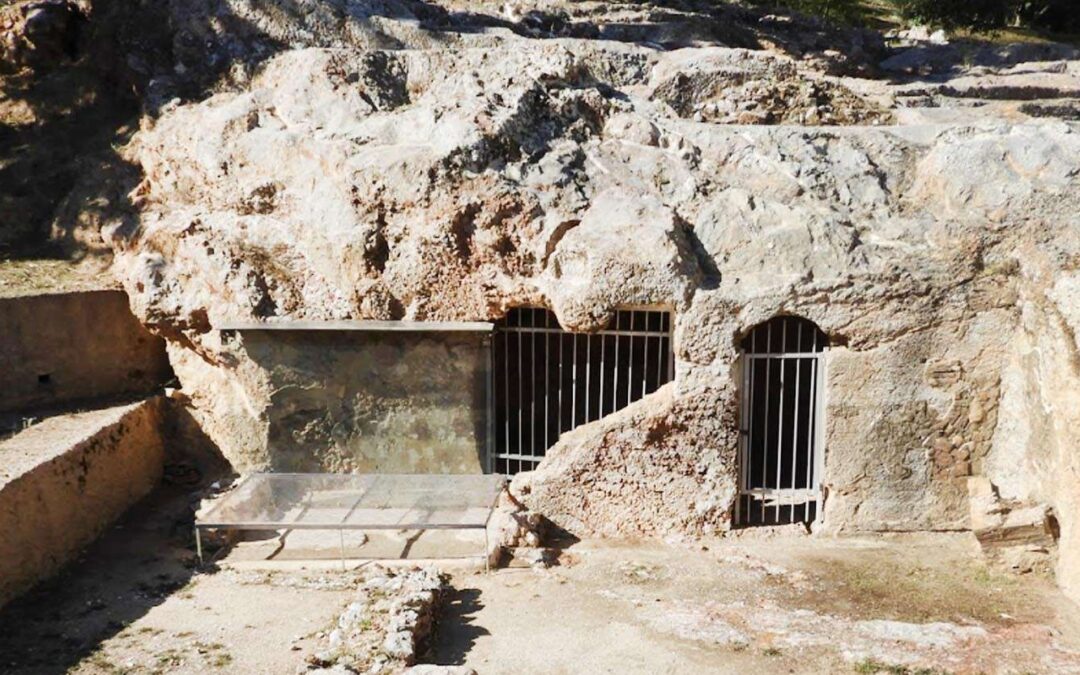 Menander’s comedy The Bad-Tempered Man [aka Dyskolos] was lost for centuries until discovered in the 1950s. A pivotal episode is a pilgrimage to the shrine of Pan at Phyle on a hillside in what is now Athens, where a sacrificial meal will cooked to appease the...
Menander’s comedy The Bad-Tempered Man [aka Dyskolos] was lost for centuries until discovered in the 1950s. A pivotal episode is a pilgrimage to the shrine of Pan at Phyle on a hillside in what is now Athens, where a sacrificial meal will cooked to appease the...
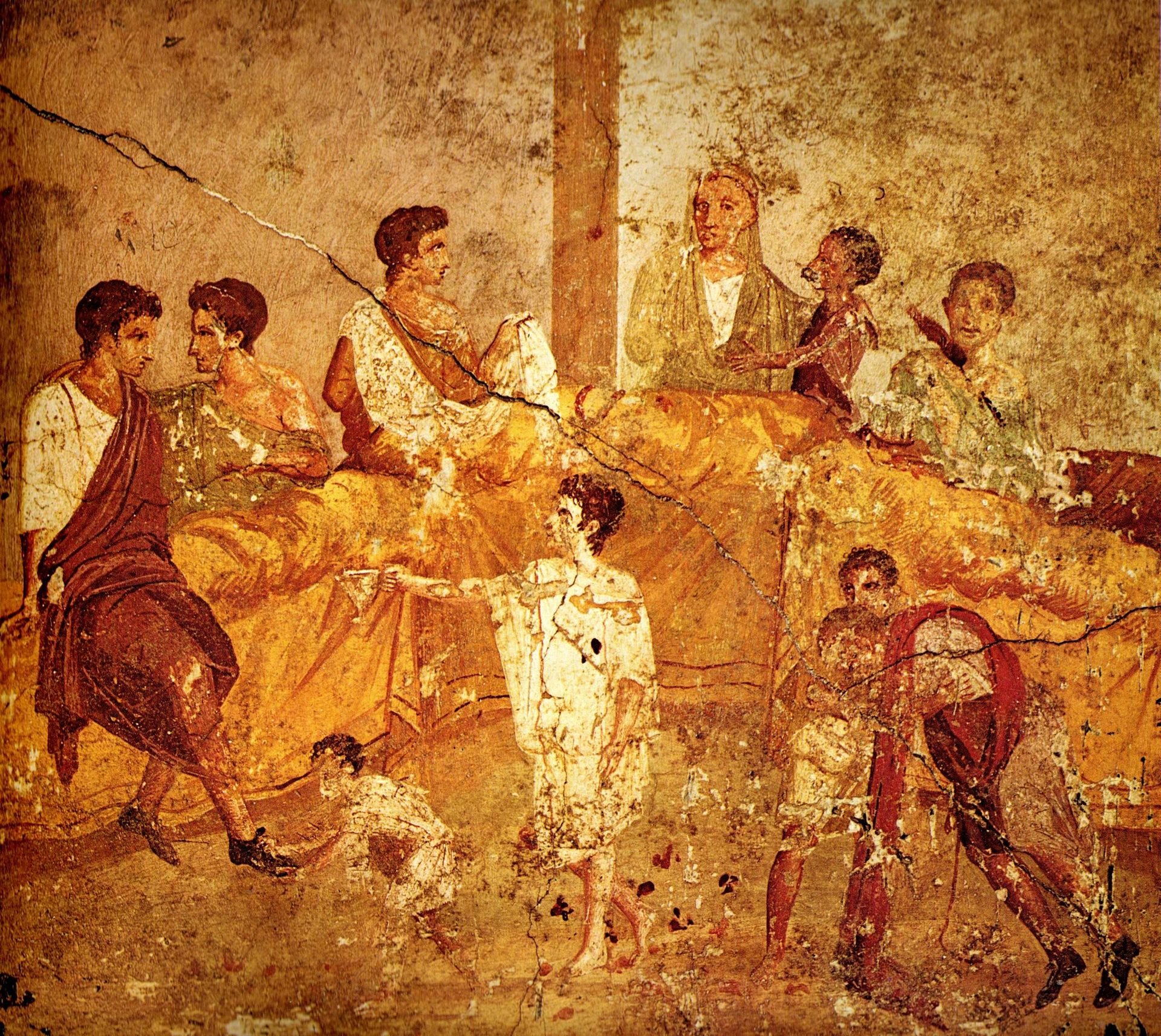 Horace delights in a rustic country dinner resembling eranos, the Greek custom of dining where each guest contributes something. A guest might contribute money, food, drink, or entertainment. Horace’s adaptation of this custom required that his guest provide...
Horace delights in a rustic country dinner resembling eranos, the Greek custom of dining where each guest contributes something. A guest might contribute money, food, drink, or entertainment. Horace’s adaptation of this custom required that his guest provide...
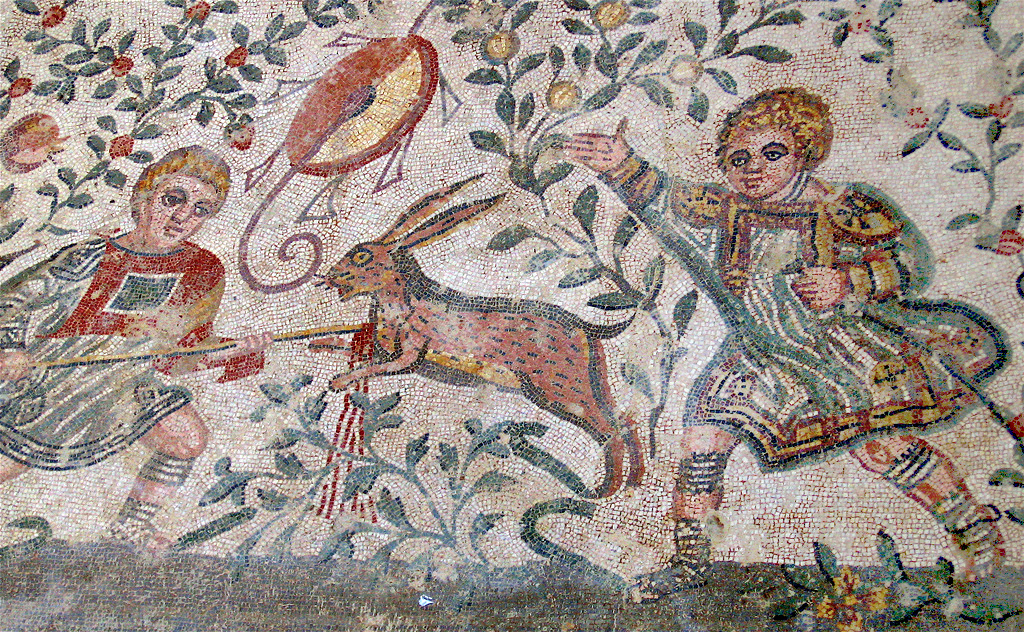 Hunting feasts have a long history. Among the Romans, one such by Philostratus Elder uses the rhetorical device of Ekphrasis, a verbal description of a visual representation, to illustrate a painting he observed in Naples. Ironically, none survive, if they existed at...
Hunting feasts have a long history. Among the Romans, one such by Philostratus Elder uses the rhetorical device of Ekphrasis, a verbal description of a visual representation, to illustrate a painting he observed in Naples. Ironically, none survive, if they existed at...
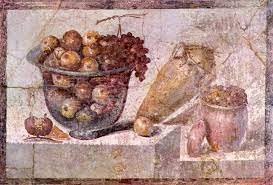 Seneca says that eating ripe figs at a picnic brings “me a New Year feast every day, and I make the New Year happy and prosperous by good thoughts and greatness of soul.” Figs—only figs—that he claims is a substitute for bread. It is among the oddest main dishes for a...
Seneca says that eating ripe figs at a picnic brings “me a New Year feast every day, and I make the New Year happy and prosperous by good thoughts and greatness of soul.” Figs—only figs—that he claims is a substitute for bread. It is among the oddest main dishes for a...
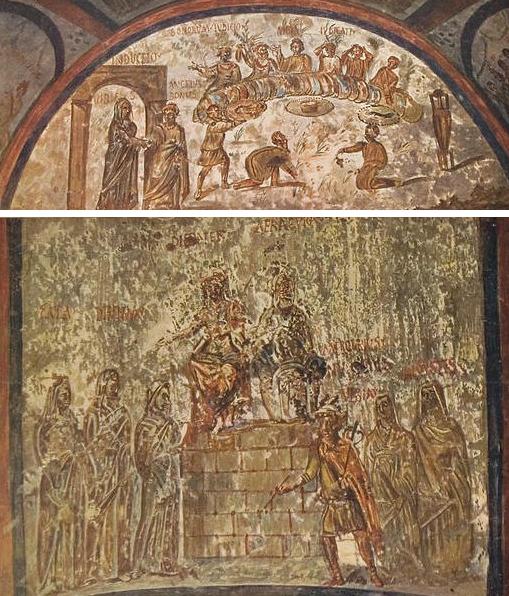 The feast that decorates Vibia’s resembles a picnic. Her life story is painted in an indented arch. In a comic strip style, Vibia journeys through Hades to Elysium at her death. On the left, Vibia is being led through an archway labeled Inductio by Good Angel, Angelus...
The feast that decorates Vibia’s resembles a picnic. Her life story is painted in an indented arch. In a comic strip style, Vibia journeys through Hades to Elysium at her death. On the left, Vibia is being led through an archway labeled Inductio by Good Angel, Angelus...
 The Sevso Plate * (27.8 inches in diameter) may also reference a hunting feast describe by the roman writer Philostratus. But the iconography is Christian. The Chi-Rho situated at the apex of the legend on the plate’s circumference is a symbol for Jesus Christ...
The Sevso Plate * (27.8 inches in diameter) may also reference a hunting feast describe by the roman writer Philostratus. But the iconography is Christian. The Chi-Rho situated at the apex of the legend on the plate’s circumference is a symbol for Jesus Christ...
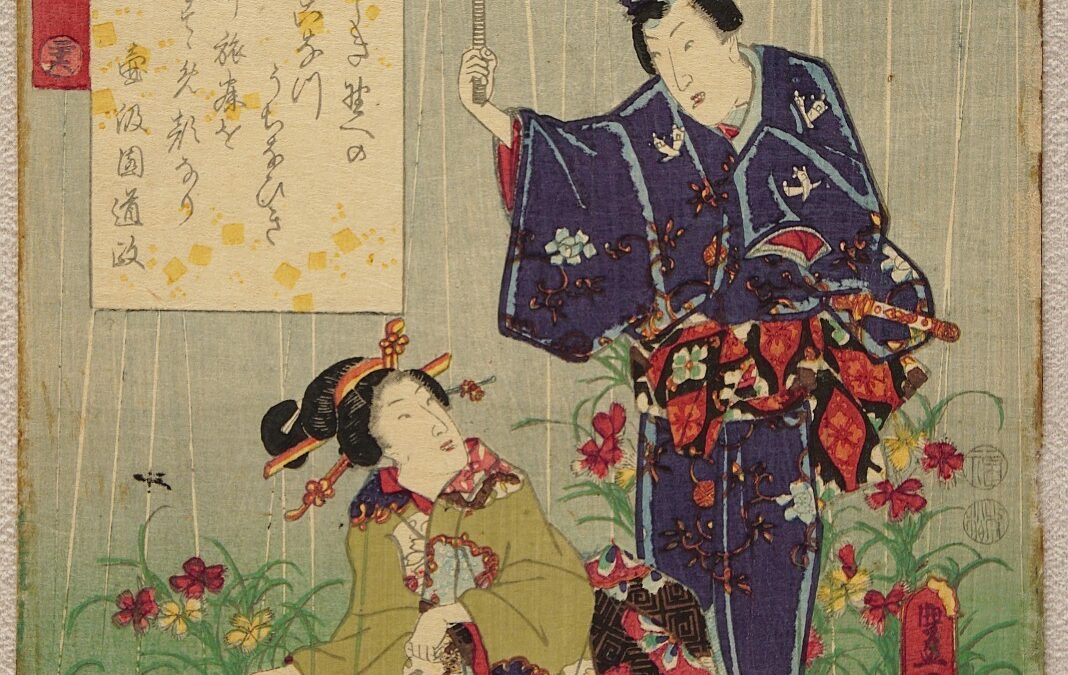 to relax at a palace fishing pavilion with close friends. Arthur Whaley translates the outing as a picnic, though Lady Murasaki has no such vocabulary word. The chapter is “Wild Carnations” or Tokonatsu One very hot day Genji, finding the air at the New...
to relax at a palace fishing pavilion with close friends. Arthur Whaley translates the outing as a picnic, though Lady Murasaki has no such vocabulary word. The chapter is “Wild Carnations” or Tokonatsu One very hot day Genji, finding the air at the New...
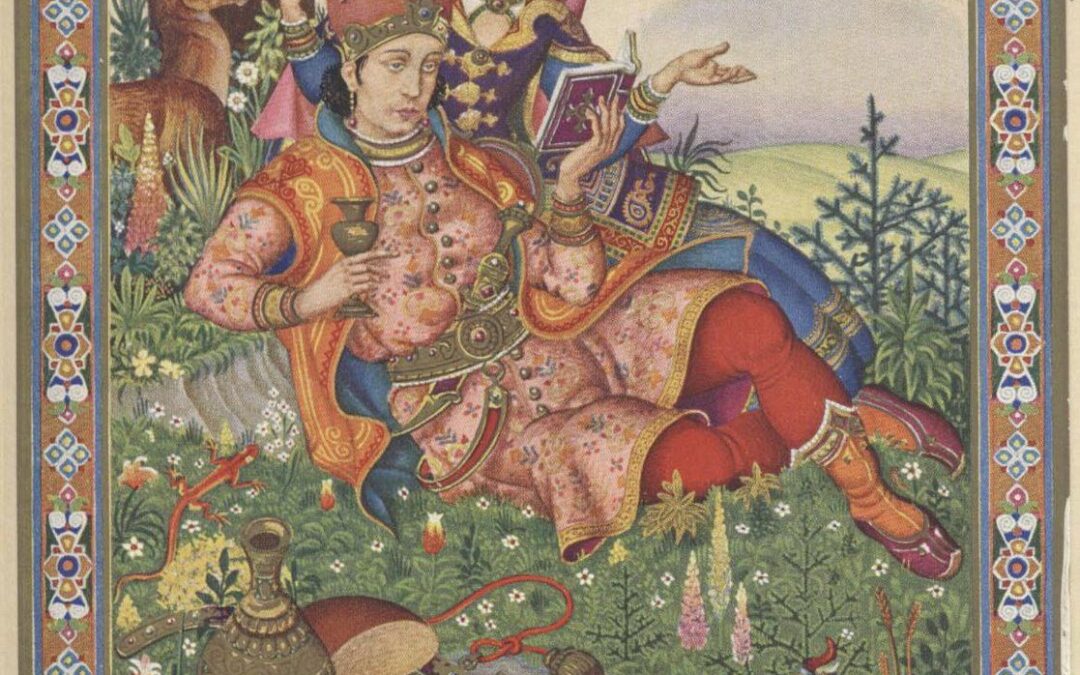 Omar Khayyam is better known for his love poems than his philosophy. His vision of lovers picnicking is in Rubáiyát “XI” in the collection of his poetry titled The Rubáiyát of Omar Khayyám, most often read in Edward Fitzgerald translation: A Book of Verses...
Omar Khayyam is better known for his love poems than his philosophy. His vision of lovers picnicking is in Rubáiyát “XI” in the collection of his poetry titled The Rubáiyát of Omar Khayyám, most often read in Edward Fitzgerald translation: A Book of Verses...
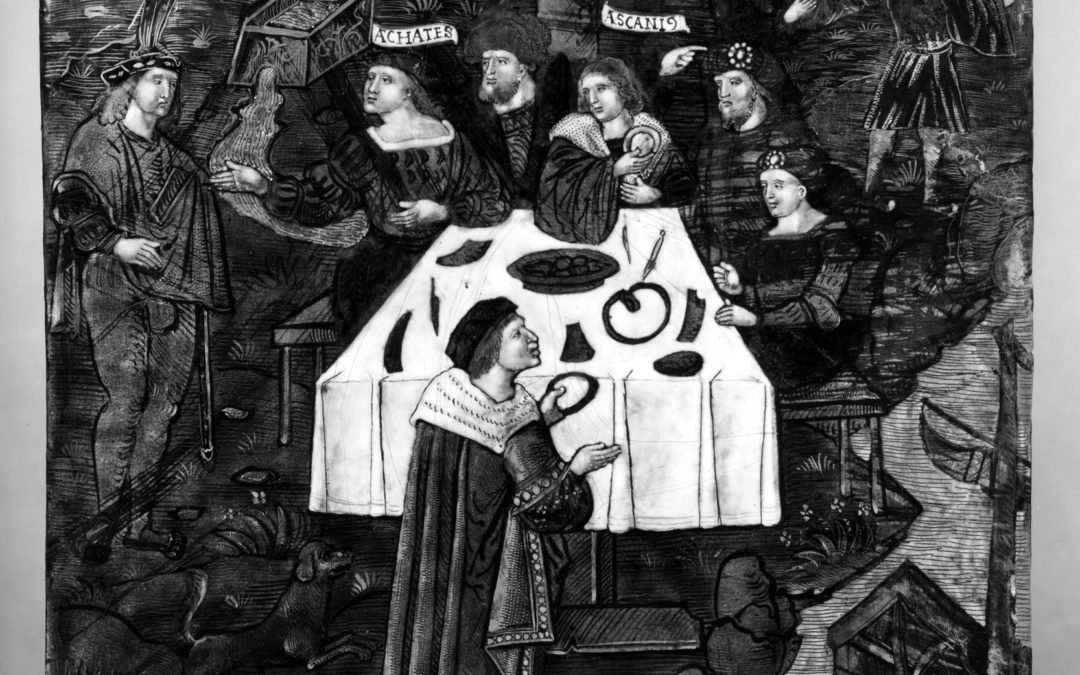 A prophecy held that Aeneas and companions would know where to build the new Troy when being desperately hungry, they ate their plates—trenchers made of thick slices of stale bread. This revelation occurs at their first meal in Latium. Virgil’s details,...
A prophecy held that Aeneas and companions would know where to build the new Troy when being desperately hungry, they ate their plates—trenchers made of thick slices of stale bread. This revelation occurs at their first meal in Latium. Virgil’s details,...
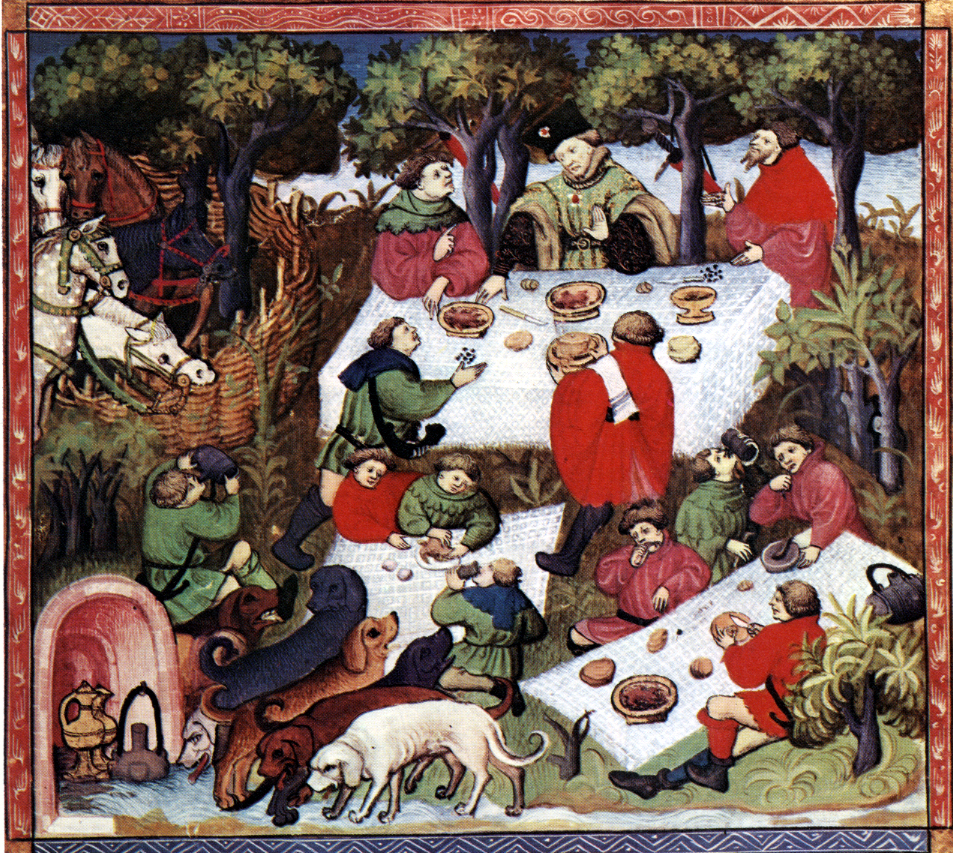 Gaston III’s The Book of Hunt formalized the hunter’s assemblée as the model for a meal during a hunt. It is not a picnic. Gaston did not intend this gathering as a luncheon but as an early morning meeting during which the day’s hunt was discussed...
Gaston III’s The Book of Hunt formalized the hunter’s assemblée as the model for a meal during a hunt. It is not a picnic. Gaston did not intend this gathering as a luncheon but as an early morning meeting during which the day’s hunt was discussed...











